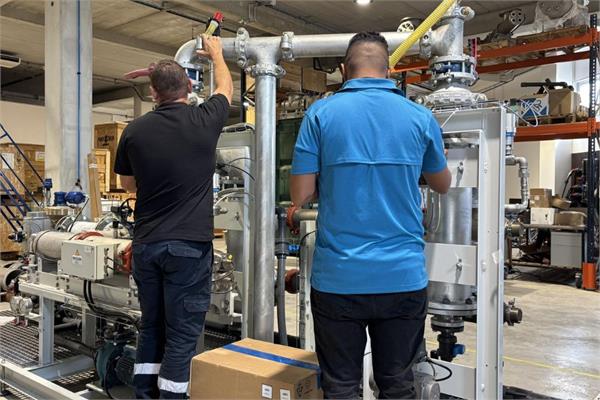
As global enforcement of IMO’s Ballast Water Management Convention tightens, the performance of ballast water treatment systems (BWTS) has become a crucial factor not only in regulatory compliance but also in protecting the integrity of hull coatings and preventing biofouling, areas where the coatings industry holds vital interest.
BIO-UV Group, a manufacturer of water treatment technologies, has launched a new Compliancy & Performance Agreement (C&P Agreement) aimed at helping shipowners maintain D-2 compliance and ensure their BIO-SEA ballast water treatment systems operate at peak efficiency — a development with strong implications for the paints and coatings sector, where regulatory risk and maintenance reliability are top priorities.
According to BIO-UV Group, more than 30% of vessels fail D-2 compliance inspections, despite having installed type-approved BWTS. These failures are often attributed to poor crew training, operational oversights, or inadequate system maintenance — all of which can compromise vessel performance, fuel efficiency, and the effectiveness of antifouling coatings due to unplanned bio-intrusion.
The C&P Agreement tackles this challenge head-on, offering ship operators an annual onboard service by trained BIO-UV technicians. This includes calibration of sensors, inspection of key components, and crew training to ensure system knowledge is retained onboard — a point especially relevant for coating professionals tracking hull cleanliness and dry-docking schedules.
Core maintenance tasks such as UV lamp replacement, sensor calibration, and air/water filter cleaning are included. These processes, if neglected, can lead to increased fouling risk and pressure inconsistencies — issues that directly impact the performance and lifespan of hull coatings. In addition, the programme helps shipowners manage spare parts inventories by offering preferred pricing and proactive stockpile planning, mitigating the supply chain risks often associated with obsolete or unsupported systems.
“System obsolescence is an increasing concern, particularly where BWTS manufacturers have exited the market. This puts shipowners — and by extension, coating maintenance schedules — at risk of delays and detentions,” has stated Charlène Ceresola, BWT Project Manager at BIO-UV Group.
The coatings industry, which often intersects with BWTS performance during dry-dock and hull inspections, stands to benefit from BIO-UV Group’s offering. The agreement can be aligned with scheduled dry-dock periods, allowing for system upgrades and technical interventions alongside routine coating maintenance — thus helping shipowners maximise efficiency during limited downtime. This comprehensive service reduces the risk of ballast water cross-contamination, biofouling-related coating degradation, and compliance-related port detentions, all issues where paint and coating performance can be directly impacted.
About BIO-UV Group
Founded in 2000, BIO-UV Group designs, manufactures, and markets ultraviolet (UV-C), ozone, AOP, and salt electrolysis water treatment solutions. In 2011, the company added ballast water treatment to its portfolio. Its systems are produced in Lunel and Muret (France) and Great Britain, supporting clients worldwide.